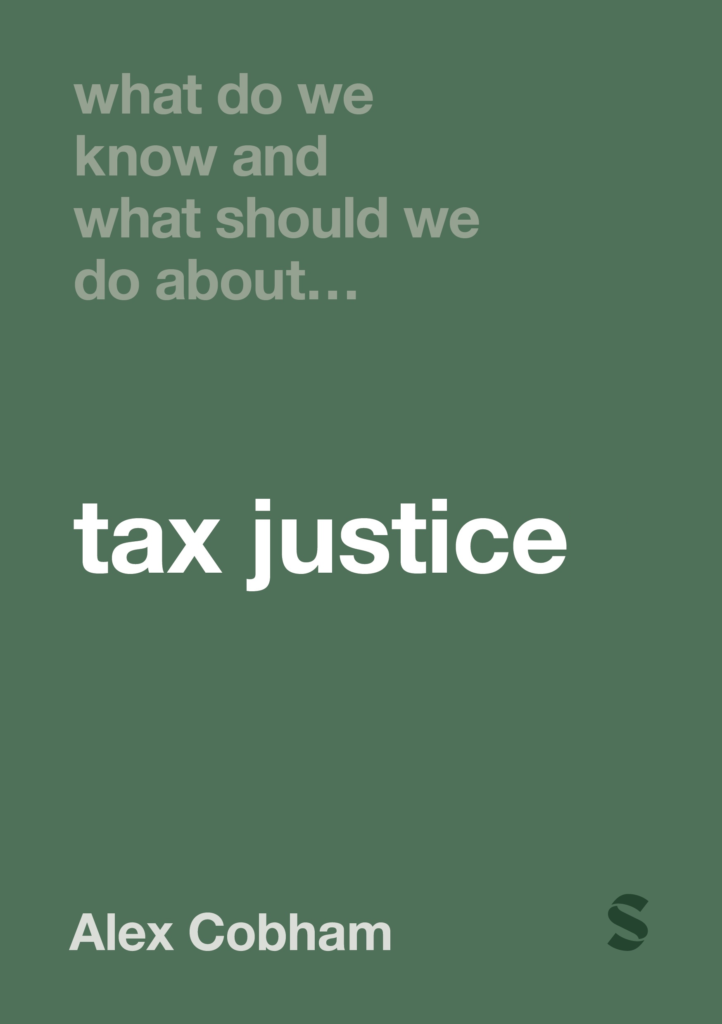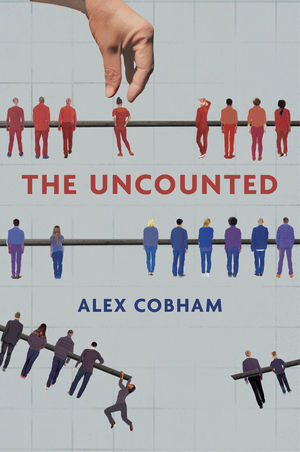Alex Cobham is an economist, author and chief executive of Tax Justice Network. On bluesky: @alexcobham.bsky.social.
Reviews for What do we know about… Tax Justice?
María Fernanda Valdés, Deputy Minister of Finance of Colombia, Ministerio de Hacienda:
Alex Cobham’s latest book is a beacon of clarity and hope in a critical period for global tax reform. International tax policy deeply impacts every global citizen, yet discussions on the matter remain far removed from the public eye, dominated by a select group of ‘experts’. This excellent work not only introduces us to the movement for tax justice, seeking a fairer system of international taxation, but also outlines its key battles, victories, and ongoing challenges in an exceptionally accessible manner. What makes this book stand out is its ability to bring the discourse on tax justice closer to the general public. With its straightforward, well-crafted prose free of jargon, Cobham demonstrates how taxation transcends expert domains to become, fundamentally, a political issue. Furthermore, the book’s utilization of mnemonic techniques, akin to Cobham’s pioneering use of the 4Rs, which has since become widely adopted, proves invaluable also for experts looking to distill ideas and clarify concepts. This book is a must-read for anyone looking to understand international tax justice issues.
 What Do We Know and What Should We Do About Tax Justice? (SAGE Publishers, December 2023)
What Do We Know and What Should We Do About Tax Justice? (SAGE Publishers, December 2023)
Tax is more than just business regulation or economic policy. It is a powerful tool for creating a fair and just society. It is our social superpower.
It is estimated that cross-border tax abuse accounts for around half a trillion dollars of lost revenue around the world each year. From profit-shifting by multinational corporations to the exploitation of offshore tax havens, this book sheds light on the people and organisations that enable tax abuse, and the stark social inequalities it creates.
Crucially, it also explores what we can do about it. What are the practical realities of challenging the threats of tax injustice and of holding abusers accountable? What are the policies and institutional shifts we need to see and fight for?
Interview with Pengeland
Launch event: Oslo
Previous books:
The Uncounted, Polity Press/John Wiley.
 ‘In this sharply written and persuasive book, Alex Cobham contrasts the rich who benefit from being uncounted for tax and regulation purposes with the poor who are denied their rights by being uncounted for public services. Essential reading to understand and address inequality.’
‘In this sharply written and persuasive book, Alex Cobham contrasts the rich who benefit from being uncounted for tax and regulation purposes with the poor who are denied their rights by being uncounted for public services. Essential reading to understand and address inequality.’
Jayati Ghosh, Jawaharlal Nehru University, New Delhi
‘This book is a joy to read. Original and highly persuasive, it powerfully illustrates that statistics are political, and that the failure to count is a deliberate act that disempowers the poor and unfairly benefits the rich.’
Andrew Sumner, King’s College London
“An important contribution”
Journal of Australian Political Economy
Estimating illicit financial flows: A critical guide to the data, methodologies and findings (with Petr Janský), Oxford University Press.
-
-
- A unique and comprehensive survey of methodologies and data for all leading global estimates of the scale of illicit financial flows
-
- Includes an explanation of the history and definitional debates of the term ‘illicit financial flows’ and the related rise of the global tax justice movement
- Proposes key indicators of illicit financial flows and related UN and national policy instruments
- An open access title (pdf) available under the terms of a CC BY-NC-ND 4.0 licence
About Alex
Over the last twenty years Alex has worked in a range of policy advocacy and research roles, including at Oxford University as a junior economics fellow at St Anne’s College and as a researcher at Queen Elizabeth House (the Department of International Development); at Christian Aid, where as chief policy adviser he played a central role in the development of the first major development INGO campaign on tax justice; at Save the Children (UK) as head of research, and at the Center for Global Development as a research fellow. In 2015 he became director of research at the Tax Justice Network, and the following year accepted the role of chief executive.
Alex has consulted widely, for organisations including UNCTAD, the UN Economic Commission for Africa, the UN Economic and Social Commission for West Asia, the Tana Forum, Oxfam, the Bretton Woods Project, the UK Department for International Development (as was) and the World Bank.
Alex’s research has mainly focused on issues of taxation, horizontal and vertical inequality, and illicit financial flows, including some of the first estimates of the costs of tax avoidance and tax evasion for developing countries. With Prof Andy Sumner, Alex proposed a new measure of inequality, the Palma ratio, based on the insights and analysis of Prof. Gabriel Palma for whom it is named. Alex is also a co-creator of the twin, global rankings of tax haven behaviour, the Financial Secrecy Index and the Corporate Tax Haven Index. He made the original proposal for what is now the ICTD/UNU-WIDER Government Revenue Dataset, the leading international source for comparative data on countries’ tax revenues.
In 2005, Alex put forward a now commonly used framework for the purposes of tax, the four Rs (revenue, redistribution, repricing and representation). More recently, he coined the term ‘the ABC of tax transparency’, to describe a key policy platform of the tax justice movement: automatic exchange of financial information; beneficial ownership transparency through public registers; and country-by-country reporting by multinational companies.
Alex is on the steering group for the International Commission for the Reform of International Corporate Taxation (ICRICT) and the technical advisory group for the Fair Tax Mark. He was formerly a commissioner for the Scottish Government’s Poverty and Inequality Commssion, was on the board of trustees of ActionAid UK, on the policy committee of CSAE (the Centre for the Study of African Economies at Oxford), on the advisory group for the UN’s thematic consultation on inequalities in post-2015, on the research advisory panel for the Pan African Inequalities conference, and was a representative of the Financial Transparency Coalition on the European Commission’s EU Joint Transfer Pricing Forum.
Journal publications include papers in Economic Geography, Development Policy Review, Journal of International Development, Transnational Corporations, Global Policy and Journal of World Business (full list at Google Scholar); studies for UNCTAD and the UN Economic Commission for Africa, and a European parliamentary group; and book chapters including in Imperial Inequalities: The politics of economic governance across European empires
(Gurminder Bhambra and Julia McClure, eds.) and in Tax, Inequality, and Human Rights (Philip Alston and Nikki Reisch, eds.).
